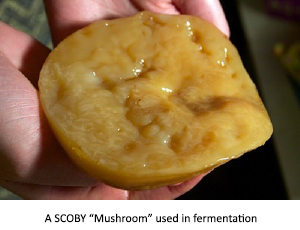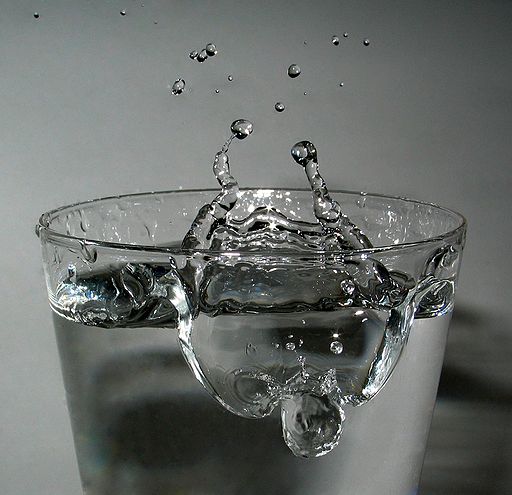Kombucha is a popular high-acid, low-alcoholic beverage composed of fermented tea and sugar. Kombucha lovers tout its use as a remedy for everything, calling it a miracle elixir. It has grown from a regional beverage to a global market. Are its health claims factual, or is it just another trendy “bubbly” beverage?
Kombucha’s Origin Story
For many millennia, fermented foods have increased food security and safety by extending the shelf-life of foods well past the harvest season by inhibiting the growth of spoilage and harmful microbes. Kombucha, the product of fermentation of tea and sugar, originated in China around 220 BC. The beverage was called the “Divine Che” and noted for its detoxifying and energizing properties. Doctor Kombu brought it to Japan in 414 AD to cure the digestive ailments of the emperor. It was later introduced to Russia by traveling merchants and then moved, with them, Europe in the early 20th century. Its popularity waxed and waned throughout the century. It is now the fastest-growing ‘functional’ beverage and a trending low-alcoholic fermented drink.
 Kombucha is fermented by a mixture of yeast and acetic acid bacteria acting together [1] to create a bit of alcohol and acetic acid. The acetic acid bacteria produce vinegar (up to 1.0% acetic acid final concentration) during fermentation, giving kombucha its characteristic ‘bite’ and low pH (2.5). It is known to have antimicrobial properties due to the low pH and the presence of some ethanol.
Kombucha is fermented by a mixture of yeast and acetic acid bacteria acting together [1] to create a bit of alcohol and acetic acid. The acetic acid bacteria produce vinegar (up to 1.0% acetic acid final concentration) during fermentation, giving kombucha its characteristic ‘bite’ and low pH (2.5). It is known to have antimicrobial properties due to the low pH and the presence of some ethanol.
Health Claims
There are numerous health claims associated with fermented products, and kombucha is no exception. Kombucha lovers tout its use as a remedy for everything, calling it a miracle elixir. The remedy list is astonishing in its diversity:
- elimination of gray hair
- increase in sexual appetite
- hemorrhoid treatment
- eyesight improvement
- rheumatism relief
- lowering cholesterol
- improving diabetes-related symptoms
- nervousness
- problems of aging
It is also recommended for practical purposes such as a household cleaner, underarm deodorant, hair rinse, age spot removal, and relaxing foot soak.
During World War I, Russia proclaimed it the “Wonderdrink” and claimed it cured headaches, gastric illnesses, and “regulated intestinal activities disturbed by a military lifestyle.” In 1951, the Russians were at it again, claiming that kombucha could increase one’s resistance to cancer, prevent cardiovascular disease, reduce inflammation, boost the immune system, and increase interferon production. Are any of these claims substantiated by science? The answer is a resounding NYET!
A "systematic review of the empirical evidence" by scientists at the University of Missouri School of Medicine found 310 peer-reviewed articles containing the word ‘kombucha’ from all available years published in PubMed, Scopus, and Ovid databases. The biological activities of kombucha were studied in rats, mice, rabbits, ducks, dogs, pigs, cattle, broiler chickens, and human lymphocytes. They found only one study involving human subjects. We have no direct evidence of kombucha’s benefits from any randomized, controlled human clinical trials. Despite the lack of data, significant grocery shelf space and internet buzz are dedicated to a beverage that may or may not promote human health.
Could there be harm?
Another historic ‘acid panacea,’ apple cider vinegar, has many similar but unsubstantiated and ridiculous health claims as kombucha. Unfortunately, misinformation from many sources has contributed to damage and disease due to long-term or concentrated vinegar consumption. Kombucha has health risks similar to apple cider vinegar. Overconsumption or consumption by sensitive individuals has been known to cause upset stomachs, metabolic acidosis, and kidney failure. Kombucha is not recommended for pregnant women or people with renal, pulmonary, or liver disease. Kombucha has been implicated in the following: low sodium levels in blood, liver inflammation, pellagra (niacin deficiency), allergic reactions, jaundice, nausea, vomiting, head and neck pain.
Kombucha is easily brewed at home, which comes with its own concerns. There have been cases of lead poisoning from brewing kombucha in a ceramic pot, cutaneous anthrax from applying the SCOBY to the skin as a painkiller, and in some instances, a high probability of contamination by other microorganisms, some of which may be pathogenic.
Dental caries or cavities can be hastened by acid consumption which causes pitting in the tooth enamel. Kombucha transforms the mouth into a breeding ground for harmful bacteria, resulting in plaque accumulation, gum disease, and tooth decay.
Kombucha is mildly alcoholic due to the yeast fermenting the sugar and must contain less than 0.5 % alcohol by volume, or it is considered a regulated alcoholic beverage. Like higher-content alcoholic beverages, kombucha should be enjoyed in moderation. In 1994, the CDC recommended no more than 4 oz per day if consumed by healthy individuals.
 Water is the most abundant ingredient in kombucha. If from a reliable source, it has no known health risks. It is the unsung functional ingredient in many teas, cleanses, infusions, elixirs, potions, and miracle cures. Try some today!
Water is the most abundant ingredient in kombucha. If from a reliable source, it has no known health risks. It is the unsung functional ingredient in many teas, cleanses, infusions, elixirs, potions, and miracle cures. Try some today!
[1] The mixture of yeast and bacteria used in this fermentation is called a SCOBY (Symbiotic Culture of Bacteria & Yeast).

